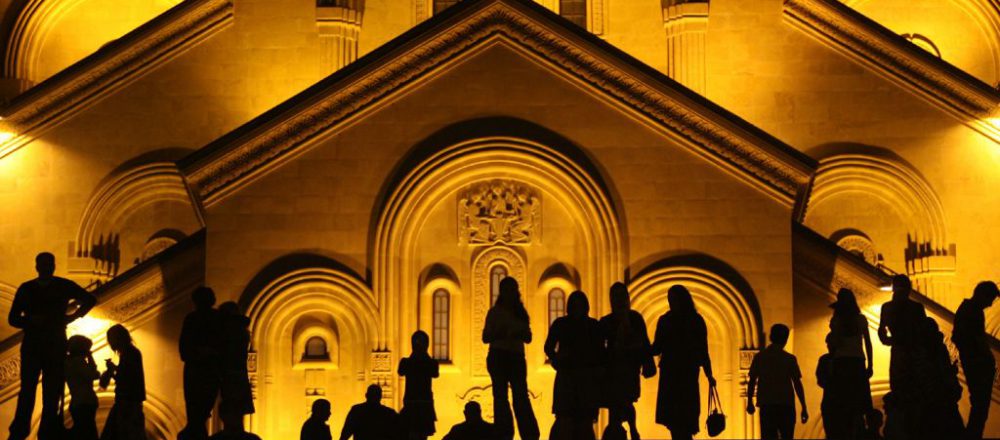By Rachel Ball. This article is part of our February 2013 focus on Religion and Human Rights.
The recent release of the Federal Government’s draft Human Rights and Anti-Discrimination Bill (HRAD) has reignited Australian debate about human rights, religion and the law. The current controversy is around the permanent exceptions in the HRAD which allow religious bodies to discriminate ‘to avoid injury to religious sensitivities’. (For background on the HRAD, including the religious exceptions, check out a previous Castan Centre blog post by Adam Fletcher, here).
The retention of the generally unpopular exceptions could be seen as a win for religious organisations that want to discriminate: they’ve kept the broad exceptions in the current laws and had them extended to the new protected attributes of gender identity, sexual orientation and religion.
However, several submissions by religious organisations to the Senate Legal and Constitutional Affairs inquiry into the Bill state that the HRAD should do more to recognise and protect religious freedom. The Anglican Church Diocese of Sydney wrote in their submission (no.380):
“We note that the Bill makes some allowance for rights of freedom of religion, freedom of association, freedom of speech and cultural expression through exceptions. However, while exceptions are necessary, casting the protection of these rights in a wholly negative manner, in the form of ‘exceptions’, does not do justice to their importance…
There is a need for positive recognition of and support for freedom of religion, freedom of association, freedom of speech and cultural expression in the Bill, among other human rights.”
Freedom for Faith (F4F), a new body ‘representing various Christian Churches and faith-based organisations in relation to issues of freedom of religion’, similarly argued (in submission no.447):
“F4F is deeply concerned that religious freedom and freedom of association are protected only by means of ‘exceptions’… F4F is of the view that addressing issues of religious freedom only by way of narrowly construed exception could be seen as being a violation of Australia’s international human rights obligations.”
The call for stronger legislative recognition and protection of human rights other than non-discrimination is surprising because conservative Christian groups have been among the most influential opponents of a Federal Human Rights Act, a law that would provide positive recognition and support for human rights, or at least for those rights contained in the ICCPR (including the right to freedom of religion and associated rights such as the right to peaceful assembly, freedom of expression and freedom of association).
Let go back a bit: in 2009-10 the Australian Government commissioned the National Human Rights Consultation (NHRC), a process designed ‘to seek a range of views from across Australia about the protection and promotion of human rights.’ The adoption of a Human Rights Act was supported by over 87% of a record 35,000 public submissions and was a key recommendation of the National Human Rights Consultation Committee.
Nevertheless, the Australian Government decided not to introduce a Human Rights Act on the basis that ‘the enhancement of human rights should be done in a way that, as far as possible, unites rather than divides us’. A key element of the perceived division was the opposition of some (but certainly not all) Christian groups. The Anglican Church Diocese of Sydney was one of the bodies that led the charge against a human rights law (their submission to the Consultation Committee is here).
Many of the Christian groups and individuals that led the ‘no campaign’ were concerned that a Human Rights Act would undermine religious freedom and threaten democracy by transferring political power to the judiciary.
Human rights advocates (including Christian human rights advocates) countered that a Human Rights Act would provide a useful framework within which to incorporate considerations of religious freedom (along with other rights) in political, administrative and judicial decision-making. Proponents of a Human Rights Act argued that even very weak domestic human rights legislation (which is what was proposed in 2009-10) would provide stronger protection for rights, including religious freedom, than is currently available.
Of course, it’s a bit cheeky (but not entirely outlandish) to suggest that the conservative Christian groups’ current calls for legislative recognition of human rights equates to an about-turn on the question of a Human Rights Act. After all, the HRAD establishes a mechanism by which individuals can pursue complaints of unlawful discrimination. Apart from section 60 which provides for qualified ‘equality before the law for people of all races’, the Bill doesn’t even protect the right to equality. It is not an appropriate vehicle for general rights protections.
Nevertheless, I do hope that all this talk of the need for better legislative recognition of freedom of religion, expression and association will still be ringing in the ears of would-be Human Rights Act opponents when it comes time to review Australia’s human rights framework in 2014.
Rachel Ball is Director of Advocacy and Campaigns at the Human Rights Law Centre. She was awarded the Finkel Foundation ‘Field to Journal’ Research grant in 2011-12 to produce an academic paper on religious opposition to human rights laws.
This article was originally published at the Castan Centre for Human Rights Law Official Blog.



